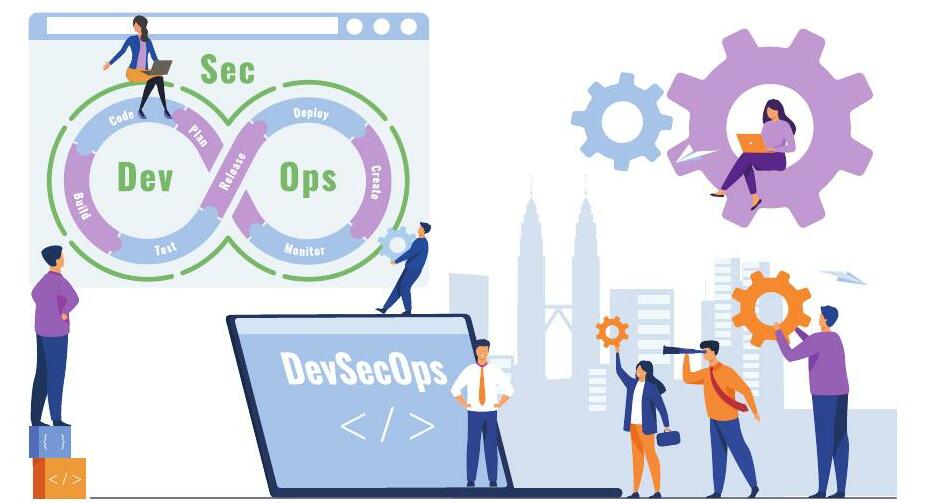
In any organisation with a technology-driven IT department, the pursuit of efficiency, agility and cost-effective high quality software development is an ongoing quest. This desire for rapid software development, aligned with the ever-increasing urgency of business stakeholders, has led to the evolution of modern DevSecOps practices. This article delves into how AI is reshaping the landscape of DevSecOps.
Elevating development and testing with DevSecOps
Successful digital transformation stories have a common denominator — the adoption of modern DevSecOps practices. This transformative process encompasses build-test-release operations, prioritising speed, quality and value creation.
Development and testing teams now face the challenge of delivering accurate, high quality products that adhere to composable architecture and cloud-based application requirements, along with rapid validation and deployment of the solution. The foundation of this efficiency lies in continuous integration (CI) and continuous delivery (CD). CI standardises development practices, while CD ensures rapid deployment with necessary libraries, configurations and provisioning. These practices, collectively known as DevOps, have proven effective for organisations embracing them.
The testing of developer code at unit level could be integrated within the CI services of most readily available products, open source or otherwise. However, when it came to functional, system and other types of testing, organisations had built manual or siloed automations. These required significant rework with every change in code along with manual interventions in execution, validation and the reporting aspects of testing. The very nature of separation of duties and the function of testing required a different approach to bring it all together.
Esta historia es de la edición September 2023 de Open Source For You.
Comience su prueba gratuita de Magzter GOLD de 7 días para acceder a miles de historias premium seleccionadas y a más de 9,000 revistas y periódicos.
Ya eres suscriptor ? Conectar
Esta historia es de la edición September 2023 de Open Source For You.
Comience su prueba gratuita de Magzter GOLD de 7 días para acceder a miles de historias premium seleccionadas y a más de 9,000 revistas y periódicos.
Ya eres suscriptor? Conectar

Linux Foundation launches LF India to foster open source innovation and support in India
The Linux Foundation, a nonprofit organisation dedicated to driving innovation through open source, has announced the launch of LF India.

Red Hat launches Ansible Automation Platform Service on AWS
Red Hat, Inc., has announced the general availability of the Red Hat Ansible Automation Platform Service on Amazon Web Services (AWS) as a managed offering available through AWS Marketplace.

Fedora Asahi Remix 41 is now generally available
The Fedora and Asahi Linux projects have announced the general availability of Fedora Asahi Remix 41, the latest version of this distribution tailored for Apple Silicon Macs.

SageMath: A Second Glance at Cybersecurity
The eighth article in the series on SageMath explores a classical encryption scheme called the Rail Fence cipher and introduces the concept of symmetric-key encryption.

Building Cross-Platform Mobile Apps with lonic
Mobile apps are an intrinsic part of daily life today we use them to order food, groceries, taxis, and more. As these apps need to work across platforms, developers are focusing on cross-platform app development so that they code only once to create apps that function on multiple platforms. lonic is a framework that can help developers build apps faster than with native app development, while saving them time and money. Let’s learn how to install and deploy it.

Open Source AI Frameworks: Integrating AI with lot
Open source Al helps loT devices learn, adapt, and automate actions based on real-time data, improving convenience and security. Here’s an overview of six key open source Al frameworks that help integrate Al with loT, and the challenges they face.

Open Source loT: A Primer for Everyone
Open source IoT platforms promise to play a central role in shaping the future, making it possible for more people and businesses to benefit from smarter, more efficient solutions. We look at a brief history of this tech and explore emerging trends.

Using Open Source and Blockchain to Build Decentralised loT Networks
Explore how blockchain is being integrated with loT to create decentralised networks. Find out how leading open source projects like IOTA and Streamr use blockchain to ensure data integrity, security, and privacy in loT ecosystems.

Internet of Things: Running Language Models on Edge Devices
Let’s delve into the technical aspects, challenges, and benefits of deploying language models on edge/loT devices.

How Open Source is Making Quantum Computing Accessible to Everyone
Open source initiatives are breaking down the barriers to quantum computing, making it accessible to everyone. Explore what quantum computing is, the challenges of traditional adoption, how open source platforms are democratising the technology, and how you can get started in this exciting domain.